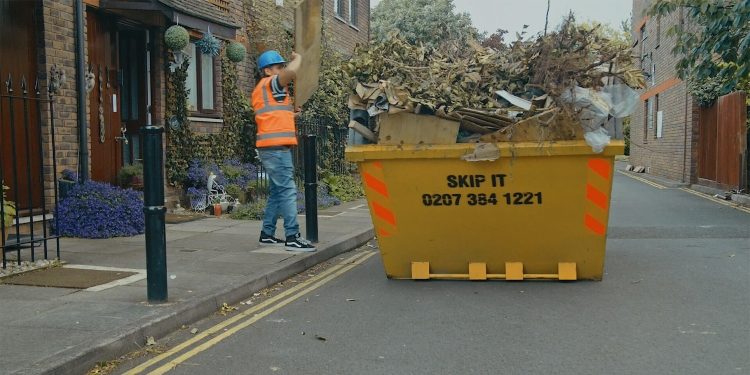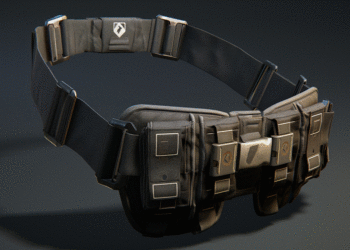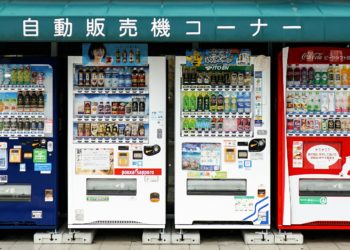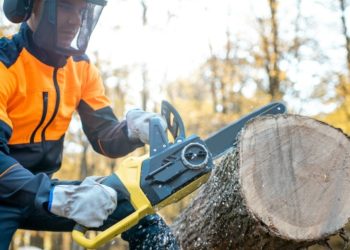Hiring a skip in Epsom is a popular waste management solution for residential and commercial needs. However, to ensure a seamless and cost-effective experience with Skip Hire Epsom, it’s essential to be aware of common pitfalls. At Skip It, we’re committed to providing top-notch service and want to help you avoid these mistakes.
Here are the crucial ones to remember for a successful skip hire experience in Epsom.
Top 7 Mistakes People Make
Not researching skip regulations in Epsom:
Each locality, including Epsom, has distinct skip hire rules. Understanding these regulations is essential to avoid fines. Researching local guidelines on skip placement, size, and allowed waste types can prevent legal and financial penalties, ensuring compliance with Epsom’s specific waste management requirements.
Overlooking Permit Needs:
Placing a skip on public property often requires a permit. Neglecting to obtain this can lead to legal troubles and fines. It’s crucial to check with local authorities in Epsom to determine if a permit is needed for your skip, ensure lawful placement, and avoid disruptions in waste disposal operations.
Choosing the wrong skip size:
Selecting an inappropriate skip size can be costly. If the skip is too small, you may need another one, while a too large skip wastes money. Estimate the waste volume carefully to choose a size that fits your needs, optimising cost and space.
Overloading the skip:
Exceeding the skip’s weight limit is dangerous and can result in additional charges. Keeping the waste level within the skip’s capacity is essential to avoid safety hazards and ensure the skip can be safely transported and handled.
Mixing hazardous waste:
Hazardous materials like chemicals or asbestos require unique disposal methods and should not be mixed with general waste in skips. Disposing such materials improperly can lead to health risks and legal consequences, emphasising the need for proper waste segregation.
Ignoring weight restrictions:
Skips have designated weight limits to prevent damage to the skip and transport vehicle. Overloading a skip not only risks extra fees but also poses safety concerns. Adhering to these restrictions ensures safe and efficient waste removal.
Not checking the company’s reputation:
Hiring a reputable skip hire company like Skip It London is crucial for reliable service. A company with a good track record ensures quality service and compliance with legal and environmental standards, safeguarding your waste disposal project against potential problems.
How does skip hire work?
Hiring a skip is a straightforward and convenient way to manage waste for home renovations or large-scale construction projects. To start, you simply choose a skip that fits the amount of waste you expect to have. Sizes vary, so there’s always one that’s right for your needs. Then, book a delivery time that works for you, and the skip will be dropped off at your chosen location.
Once the skip is in place, you can start filling it up at your own pace. Be mindful not to exceed the fill line to ensure safe and legal transportation. When you’re finished, or the skip is full, the hire company will come to pick it up. They’ll then take care of the waste, ensuring it’s disposed of responsibly and in accordance with environmental regulations. This process removes the hassle of waste management, making it a stress-free experience.
What is the biggest skip you can hire?
The biggest skip you can hire typically has a capacity of 12-14 cubic yards. This size is ideal for large construction or renovation projects, accommodating a substantial amount of waste. If your project requires handling even more waste, it’s best to get in touch with us at Skip It to find the most suitable waste management solution.
Can you put anything in a hired skip?
When hiring a skip, it’s essential to know that not all waste can be thrown into it. There are specific restrictions on what you can dispose of in a hired skip. Hazardous materials, such as chemicals, paint, and asbestos, are prohibited due to their potential harm to the environment and human health. Electrical items like fridges, freezers, and televisions are also not allowed.
Additionally, bulky waste like tyres and large pieces of furniture might be restricted. It’s essential to consult with your skip hire provider to understand the complete list of prohibited items, ensuring that you comply with waste disposal regulations and avoid any legal or environmental issues.
You can also read: What items shouldn’t be put in a skip?
Conclusion
Avoiding these common mistakes when hiring a skip can save you time, money, and hassle. At Skip It in Epsom, we’re committed to providing efficient waste management solutions. Ready to book your skip? Order online or call us today to discuss your needs and ensure a hassle-free waste disposal experience.
Faq’s
What are the key regulations for skip hire in Epsom?
In Epsom, skip hire regulations include obtaining the correct permit if placing the skip on public land, adhering to size restrictions, and ensuring that the skip is not overloaded. It’s essential to check with local Epsom authorities for specific rules related to skip placement and waste disposal.
How do I choose the right skip size for my project in Epsom?
Estimate the volume of waste your project will generate before selecting a skip size. Skips come in various sizes, typically ranging from 2 to 14 cubic yards. A 12-14 cubic yard skip may be most appropriate for large projects. If in doubt, consult with Skip It for advice on the best size for your needs.
Can I dispose of any waste in a hired skip in Epsom?
No restrictions exist on what can be placed in a hired skip. Hazardous materials like chemicals, paint, asbestos, electrical items, and bulky waste such as tyres and large furniture may be prohibited. Always verify with your skip hire provider, like Skip It London, to understand the specific items that are not allowed in your skip.
What should I do if my waste exceeds the skip’s weight limit?
If your waste is likely to exceed the skip’s weight limit, contacting your skip hire provider for guidance is crucial. Overloading a skip is unsafe and can incur additional fees. Skip It can offer solutions, such as providing a second skip or advising on alternative waste removal methods.
David Prior
David Prior is the editor of Today News, responsible for the overall editorial strategy. He is an NCTJ-qualified journalist with over 20 years’ experience, and is also editor of the award-winning hyperlocal news title Altrincham Today. His LinkedIn profile is here.




![7 Best POS Software in the UK [2026 Edition]](https://todaynews.co.uk/wp-content/uploads/2026/02/7-Best-POS-Software-in-the-UK-2026-Edition-360x180.png)








































































